As complex carbohydrates have longer chains, they take longer to break down and provide more lasting energy in the body than simple carbohydrates Both types of carbohydrate are often present in Because carbohydrates break down into glucose, they have the greatest impact on your blood glucose level To help control your blood sugar, you may need to learn to calculate the amount of carbohydrates you are eating so that you can adjust the dose of insulin accordingly There are two kinds of simple carbohydrates monosaccharides and disaccharides Each type is quite easily broken down by the body to create the glucose the body uses for energy

Nutrition Chapter 5 Carbohydrates Ppt Download
Carbohydrates break down into what simple nutrient *
Carbohydrates break down into what simple nutrient *-Digestion (2)food is broken down mechanically and chemically in the digestive tract and converted into absorbable forms specific enzymes break down foods into smaller substances that may be absorbed absorptionmajority occurs in small intestine, small amounts in stomach and large intestine occurs via passive diffusion, facilitated diffusion, and active transport Describe the Carbohydrates are a type of nutrient that gets broken down into sugars inside your body and can be found in many foods and beverages Those sugars are then used as fuel for energy There are three main types of carbohydrates Sugar Sugar is the simplest form and occurs naturally in some foods, including fruits, vegetables, and honey It is
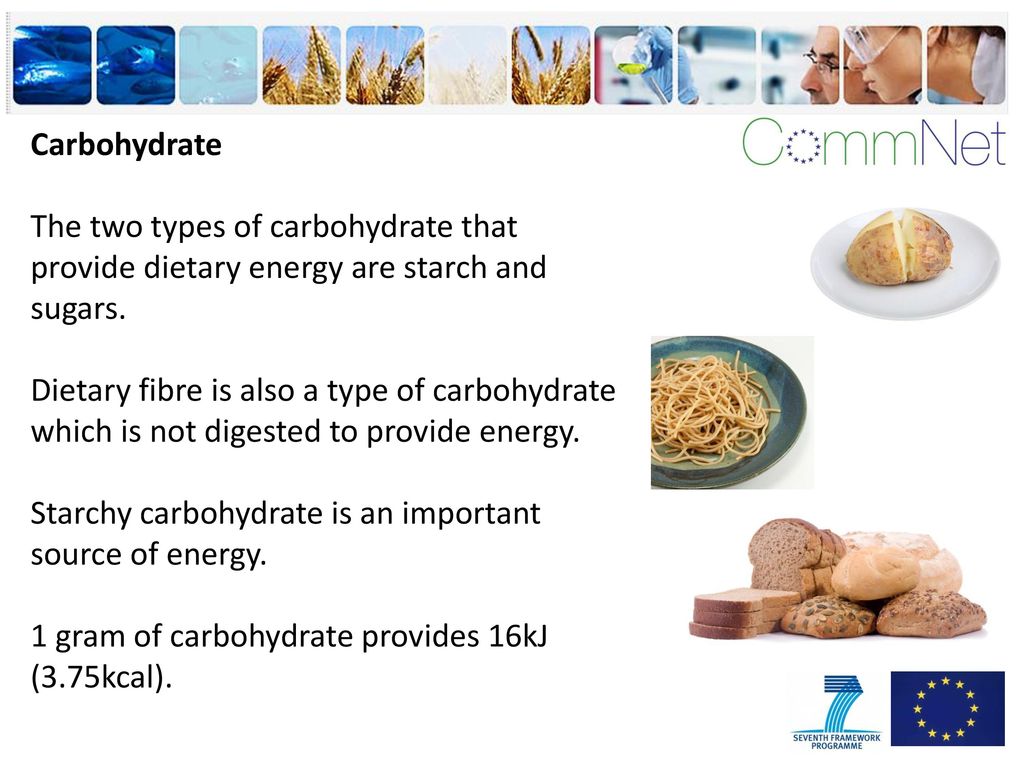



Education Phase 3 Nutrients Ppt Download
Carbohydrates Carbohydrates are nutrients that provide your body with energy But, before carbohydrates can fuel your morning run, they must be broken down into Fiber is a unique type of complex carbohydrate that the body does not break down into sugars for energy as it does with other kinds of carbs Rather, fiber passes through your digestive systemSuch as vegetables, fruits, and whole grains These carbohydrates need longer to break down into glucose and provide you the most nutrients in addition to calories
What helps to digest carbohydrates? The process of carbohydrate break down starts in our mouth with an enzyme called salivary amylase It breaks the long sugars apart into smaller subunits to be absorbed, and these small, simple carbohydrates move through the cell lining of the small intestine and into the blood in capillaries that lead to the portal vein Simple carbohydrates are grouped into monosaccharides and disaccharides The simplest unit of a carbohydrate is a monosaccharide If you break down the word 'monosaccharide' it means 'one sugar' (mono=one, saccharide=sugar) which is referring to the fact that each monosaccharide is one molecule of sugar
Starchy, refined carbohydrates Foods such as chips, bread, pasta or crackers can be as harmful to the teeth as candy Starches made from white flour are simple carbohydrates and can linger in your mouth and then break down into simple sugars Bacteria feed on these sugars and produce acid, which causes tooth decay In fact, it's processed and refined carbs which have given all carbohydrates a bad reputation Refined carbs and processed foods with high amounts of added sugar have had all their fiber and essential nutrients taken away Therefore, they can be broken down into glucose and released quickly into the bloodstream Simple carbs are classified as being "simple" because they EASILY break down in one simple step in your gut For example when you eat an apple, simple carbohydrate fructose molecules head directly to your small intestine From there, they quickly convert to glucose and absorb into your bloodstream through intestinal walls




22 3 Digestion Of Carbohydrates Ppt Download




How Carbohydrates Help The Body
Amylase enzymes are also made by the pancreas and salivary glands They help break down carbs so that they are easily absorbed by the body That's why it's often recommended to chew food thoroughly before swallowing, as amylase enzymes in saliva help break down carbs for easier digestion and absorption ( 10 )Oatmeal Quality Matters The ratio of complex to simple carbs in oatmeal changes drastically when you add sugar, which is why packaged, flavored oatmeal is less healthy than unflavored varieties For example, a packet of one major brand's applecinnamon instant oatmeal contains 145 grams of sugar, 34 grams of fiber and 156 grams of starchWhen we eat foods that contain carbohydrates the body needs to break these down into simple monosaccharides for the body to use The digestion process of polysaccharides such as starch will begin in the mouth where it is broken down or 'hydrolysed' by salivary amylase an enzyme in your saliva that helps to break down starches




17 1 3 How Do The Macronutrients Provide Atp Medicine Libretexts




What Are Carbohydrates Ojha Fitness Tract
Plants form starches, which are also called complex carbohydrates, by stringing together sugars When you eat starchy foods, the starches are broken down into sugars, including glucose, maltotriose Plus, our bodies have evolved to break down complex carbs into simpler components, including mono and disaccharides, he says In other words, even when you eat complex carbs, simple carbs end upCarbohydrates are broken down by the body into glucose, which can be absorbed into the bloodstream Once absorbed, glucose molecules travel in




Heterotrophs Consumers The Nutritional Requirements Of A Heterotroph Include Carbohydrates And Lipids Amino Acids Vitamins And Minerals Water Ppt Download




The Energy You Use Comes From The Carbohydrates In Food Your Body Changes Carbohydrates Into Glucose A Form You Can Use For Immediate Energy Your Ppt Download
Both simple and complex carbohydrates break down into glucose (aka blood sugar) A simple carb is one that's comprised of one or two sugar molecules, while a complex carb contains three or moreCarbohydrates, proteins, and fats supply 90% of the dry weight of the diet and 100% of its energy All three provide energy (measured in calories), but the amount of energy in 1 gram (1/28 ounce) differs 4 calories in a gram of carbohydrate or protein 9 calories in a gram of fat These nutrients also differ in how quickly they supply energyCarbohydrates are broken down into simple sugars during digestion and are transported all throughout the body through the circulatory system The digestion of carbohydrates starts in the mouth with the action of the enzyme called salivary amylase




Education Phase 3 Nutrients Ppt Download




Nutrients Carbohydrates Ppt Video Online Download
Some of the nutrients that were lost in processing are added back into Simple carbohydrates begin to break down into smaller components as they enter our mouth, with the help of enzymes in our saliva Some of the glucose from these simple carbohydrates is absorbed sublingually (beneath the tongue) Despite their bad rap, carbohydrates are vital to your health for a number of reasons Providing energy Carbohydrates are your body's main fuel source During digestion, sugars and starches are broken down into simple sugars They're then absorbed into your bloodstream, where they're known as blood sugar (blood glucose)




10 1 The Importance Of Nutrition Why Nutrition Matters Ppt Download




Chapter 8 Nutrition Basics Energy And Nutrients Ppt Download
Simple carbohydrates, as their name suggests, break down in one simple step in your gut When you eat an apple, simple carbohydrate fructose molecules head directly to your small intestine From Carbohydrates And Blood Sugar When people eat a food containing carbohydrates, the digestive system breaks down the digestible ones into sugar, which enters the blood As blood sugar levels rise, the pancreas produces insulin, a hormone that prompts cells to absorb blood sugar for energy or storage All carbohydrates break down into chains of sugar However, there are differences between the sugar chains of simple carbohydrates and complex carbohydrates Examples of simple carbohydrates that break down into simple sugar chains include white refined sugar, honey, molasses, white flour and fruit juice




Nutrition Exam 1 Flashcards Quizlet




Chapter 18 1a Nutrition Ppt Download
Start studying Carbohydrates (Foods) Learn vocabulary, terms, and more with flashcards, games, and other study tools The glucose that is deriving from the food sources is useful for energy or stores it as glycogen for later use The best carbohydrate sources are those that have enriched with fiber;Carbohydrates that break down more slowly, releasing sugar more gradually into the bloodstream, have a low GI As asok mentioned, watch the carbs Carbs are wreak havoc to a t2 diabetics glucose level




Diabetes Type 1 Insulin Injections Carbohydrate Counting Three Major Nutrients 1 Carbohydrates 2 Protein 3 Fat Carbohydrates 1 Starch 2 Fruit Ppt Download




Nutrition Lesson 1 Nutrients Ppt Download
Simple sugars What is glucose's other name?Carbohydrates Carbohydrates — fiber, starches and sugars — are essential food nutrients that your body turns into glucose to give you the energy to function Complex carbs in fruits, vegetables and wholegrain products are less likely to spike blood sugar than simple carbs (sugars) Lowcarb diets like keto can be high in fatsDigestion and Absorption of Carbohydrates From the Mouth to the Stomach The mechanical and chemical digestion of carbohydrates begins in the mouth Chewing, also known as mastication, crumbles the carbohydrate foods into smaller and smaller pieces The salivary glands in the oral cavity secrete saliva that coats the food particles



What Does The Complete Digestion Of Carbohydrates Proteins And Fats Occur In Quora



Chapter 4 Carbohydrates Flashcards Quizlet
Simple carbohydrates are digested very quickly refined sugar, rice cakes, white bread, white rice, and others Look for foods with a high glycemic index (ie, are quickly digested) and they will be simple carbs One reason people often lose weig After passing through the stomach, digestion resumes in the small intestine As food passes into the small intestine, it triggers the pancreas to release pancreatic amylase into the intestine to further break down complex carbohydrates into disaccharides (2 When you eat carbohydrates in the form of sugar or starches, your body's goal, as noted by the Cleveland Clinic, is to break them down into the simple sugar, glucose, which it can use for energy The carbohydrates aren't really converted into glucose — they already contain the sugar in a more complex package




Autotrophic Heterotrophic Ppt Download
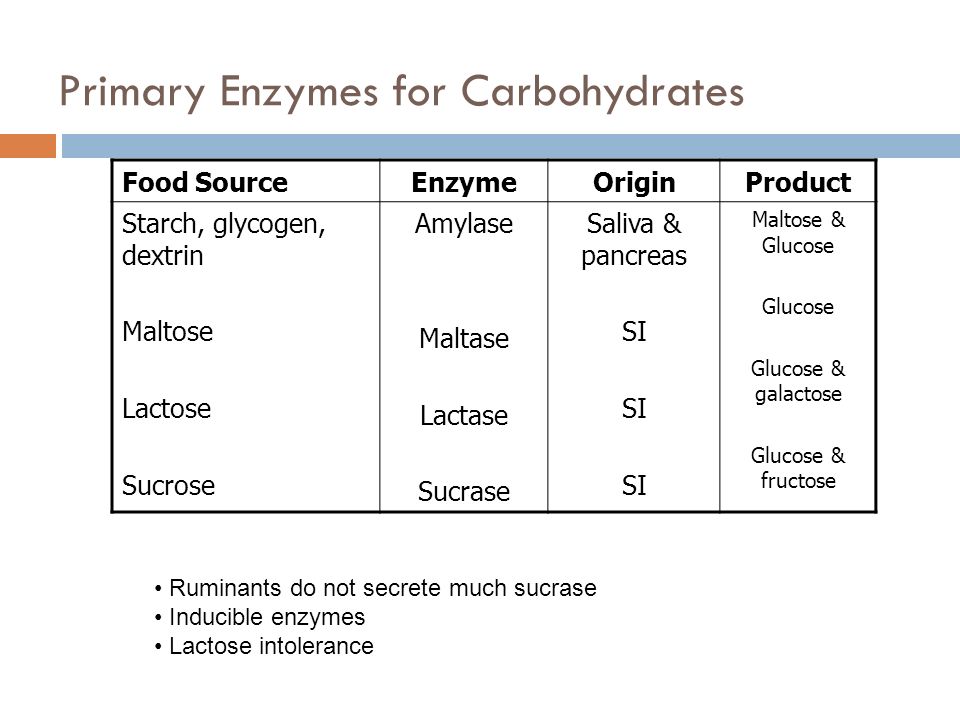



An Overview Of Nutrients Ppt Download
Simple carbs are basic sugars with little to any nutritional value for our body This usually comes from the stuff that you can't stop eating Candy bars, donuts, milk duds, chocolatecovered grasshoppers Glucose is the most popular simple sugar found in simple carbs Everyday sugar makes its way into our diets in the form of carbsSimple carbohydrates are easy for your body to breakdown for energy or glucose They have 12 sugar molecules and are found in items that are usually sweet such as honey, table sugar, syrup, agave nectar, molasses, milk/yogurt, and fruitCarbohydrates simple carbs that break down quickly during digestion and release sugar rapidly into the bloodstream have a high GI;




Heterotrophs Consumers The Nutritional Requirements Of A Heterotroph Include Carbohydrates And Lipids Amino Acids Vitamins And Minerals Water Ppt Download




Heterotrophs Consumers The Nutritional Requirements Of A Heterotroph Include Carbohydrates And Lipids Amino Acids Vitamins And Minerals Water Ppt Download
Simple carbs (sugar), complex carbs (starches, these are better for you!) and fiber What do complex carbohydrates break down into in the digestion process? Carbohydrates, once eaten, break down into simple sugars that enter the bloodstream, according to KidsHealth 3 The more carbohydrates a teen consumes, the more insulin a hormone the pancreas produces to create energy for his body Eating the right amount of carbohydrates is essential to keeping the teen body running as it should Complex carbohydrates are starches and broken down more slowly than simple carbs and will raise sugar levels more slowly Note that eating highly refined starches such as white bread will usually result in a sharp rise in blood sugar levels Whole grain foods, which have a greater level of fibre, are a much better choice of starches as the
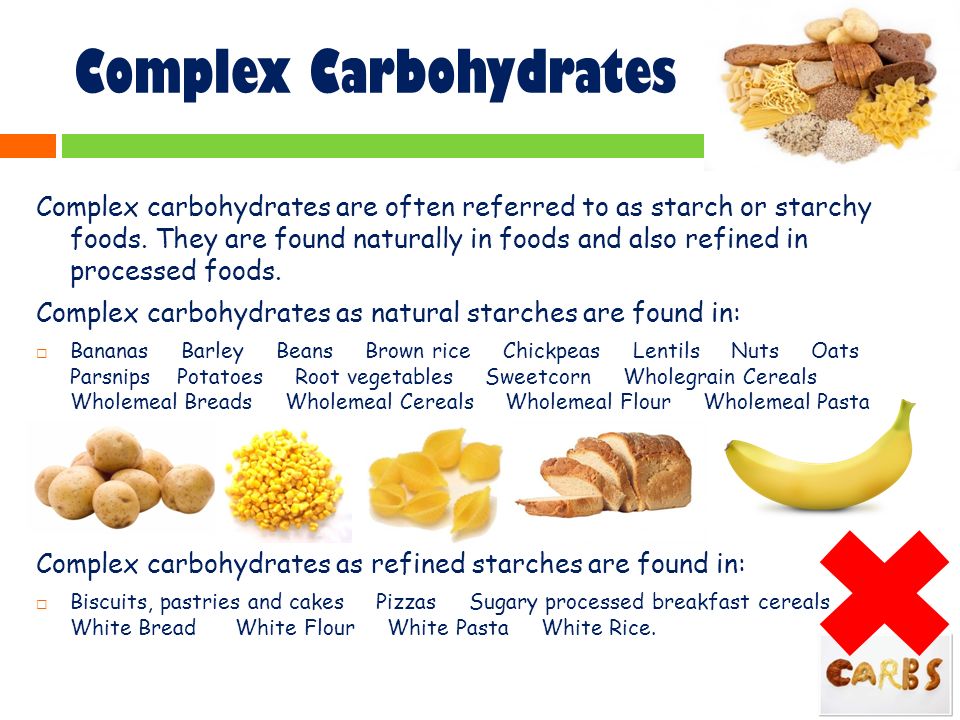



Nutrients Carbohydrates Ppt Video Online Download




Heterotrophs Consumers The Nutritional Requirements Of A Heterotroph Include Carbohydrates And Lipids Amino Acids Vitamins And Minerals Water Ppt Download
These nutrients are digested into simpler compounds Carbohydrates are used for energy (glucose) Fats are used for energy after they are broken into fatty acids Protein can also be used for energy, but the first job is to help with making hormones, muscle, and other proteins
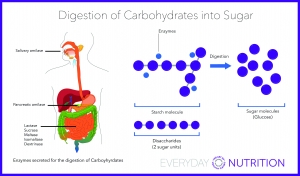



Everyday Nutrition Digestion Of Carbohydrates Into Sugar
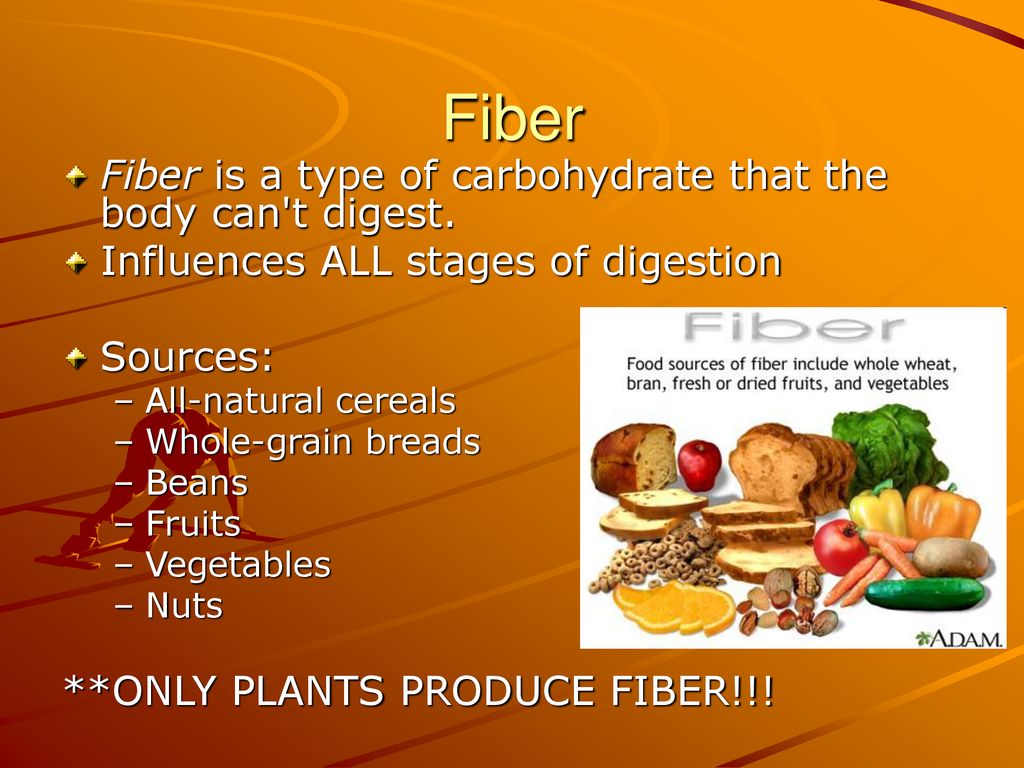



Seven Nutrients Ppt Download




Heterotrophs Consumers The Nutritional Requirements Of A Heterotroph Include Carbohydrates And Lipids Amino Acids Vitamins And Minerals Water Ppt Download




Nutrition Chapter 5 Carbohydrates Ppt Download




Nutrition Notes For Ihm First Semester Students Unit 3 Macro Nutrients Carbohydrates




Carbohydrates Learning Targets 1 Ppt Video Online Download



Nutrition Fn 225




Heterotrophs Consumers The Nutritional Requirements Of A Heterotroph Include Carbohydrates And Lipids Amino Acids Vitamins And Minerals Water Ppt Download
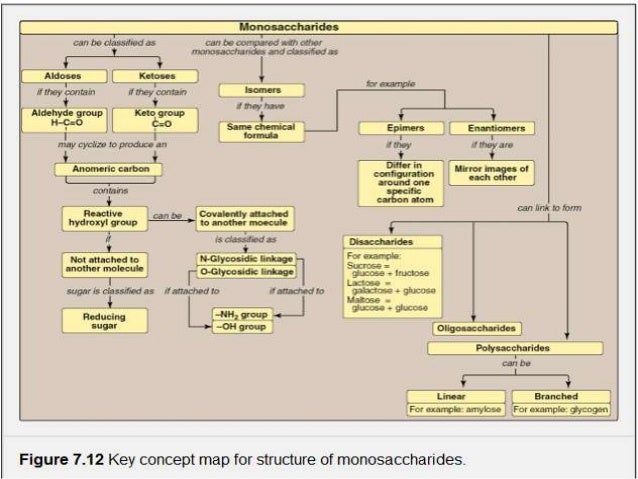



Digestion Of Carbohydrates
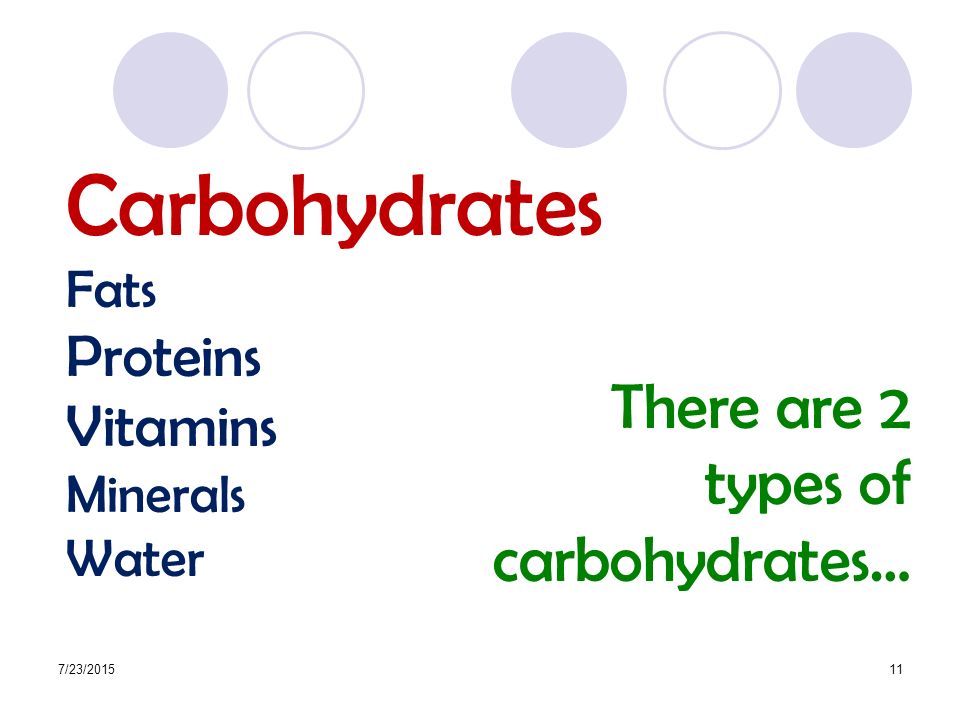



Nutrition 7 23 Ppt Download




Seven Nutrients Ppt Download




Carbohydrates Almost All Of Our Carbohydrates Come From Plant Food Sources We Get Most Of Our Carbohydrates From The Grains Group Fruits And Ppt Download



What Does The Complete Digestion Of Carbohydrates Proteins And Fats Occur In Quora




The Energy You Use Comes From The Carbohydrates In Food Your Body Changes Carbohydrates Into Glucose A Form You Can Use For Immediate Energy Your Ppt Download
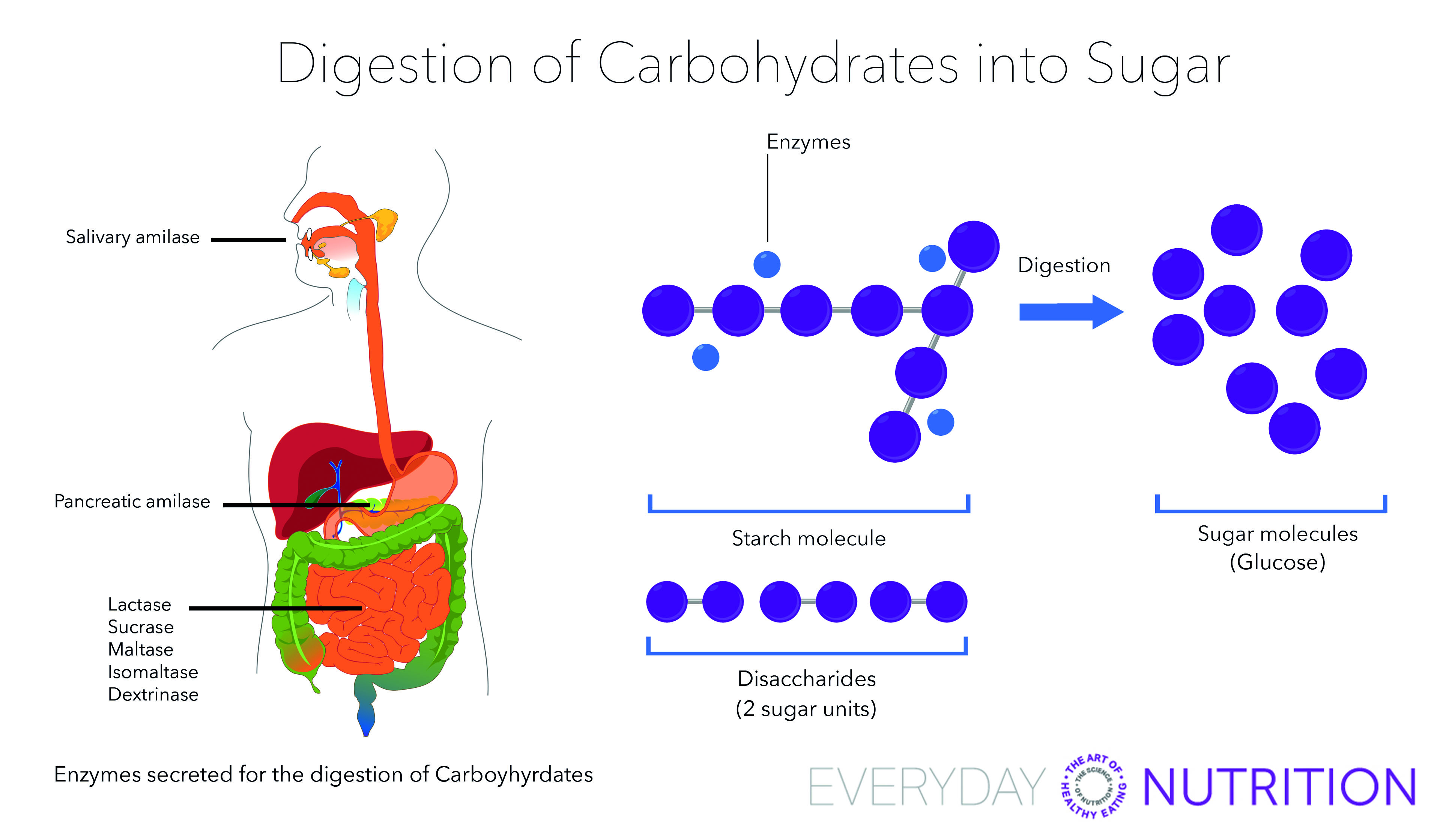



Everyday Nutrition Digestion Of Carbohydrates Into Sugar




Chapter 4 Carbohydrates Sugar Starch Glycogen And Fiber Ppt Video Online Download




What Are Carbohydrates Ojha Fitness Tract




A Closer Look At Nutrition Carbohydrates Flashcards Quizlet
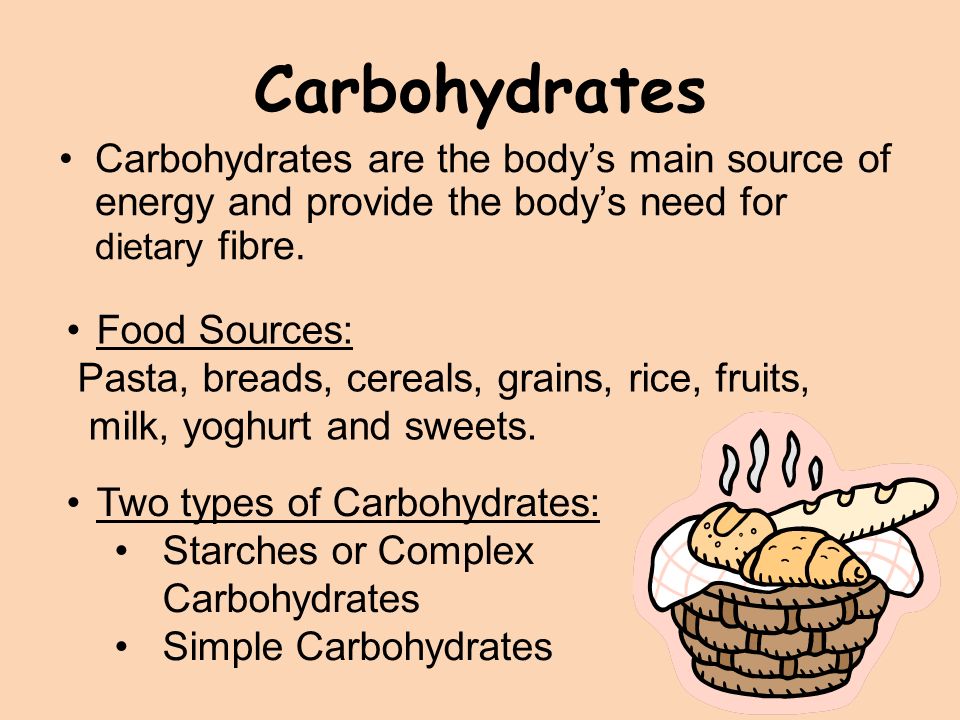



Different Types Of Nutrients Ppt Video Online Download




Heterotrophs Consumers The Nutritional Requirements Of A Heterotroph Include Carbohydrates And Lipids Amino Acids Vitamins And Minerals Water Ppt Download




The Energy You Use Comes From The Carbohydrates In Food Your Body Changes Carbohydrates Into Glucose A Form You Can Use For Immediate Energy Your Ppt Download



1



Chapter 4 Test Hum Flashcards Quizlet
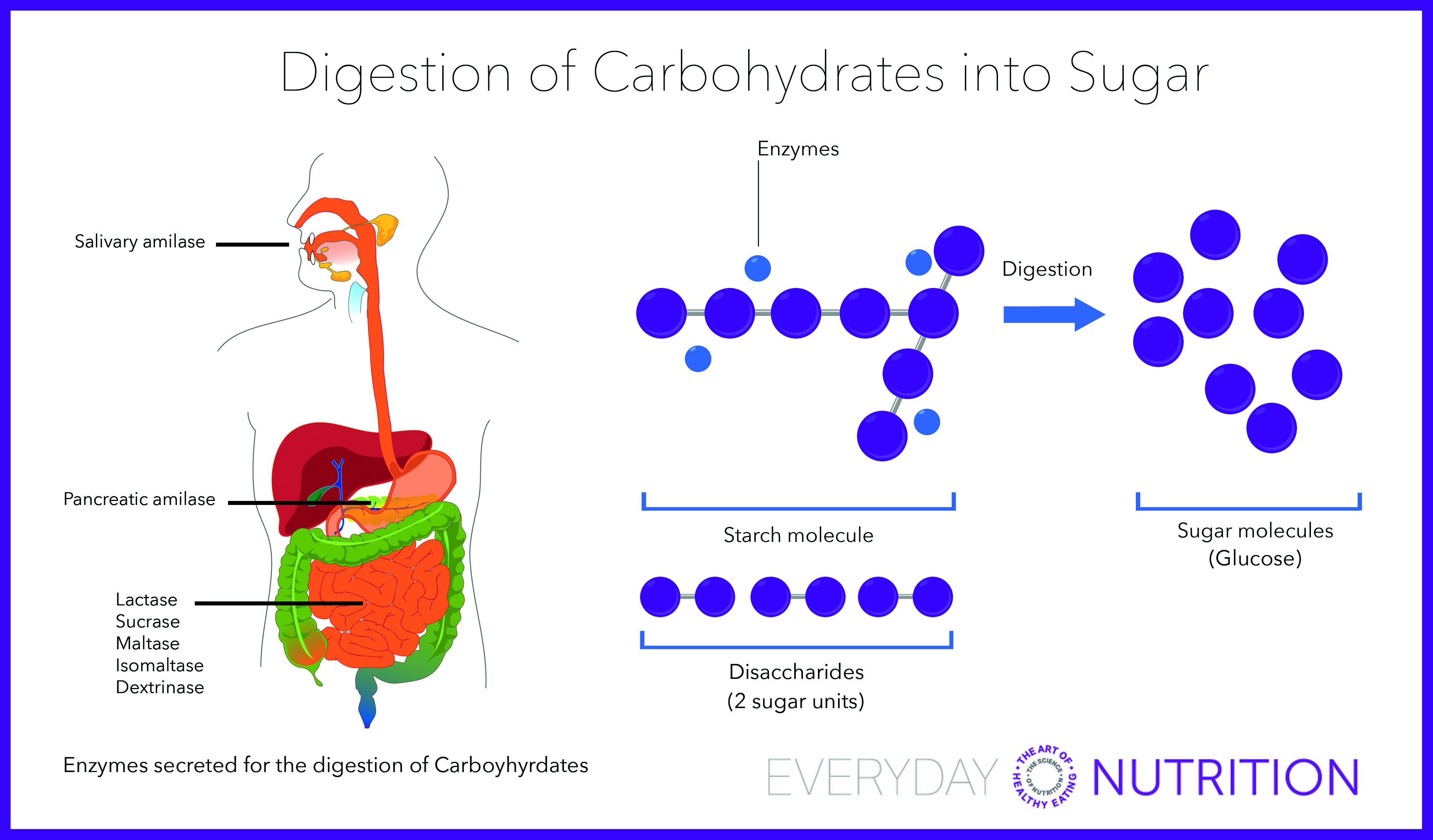



Everyday Nutrition Digestion Of Carbohydrates Into Sugar




Chapter 6 Getting And Using Nutrients Ppt Download
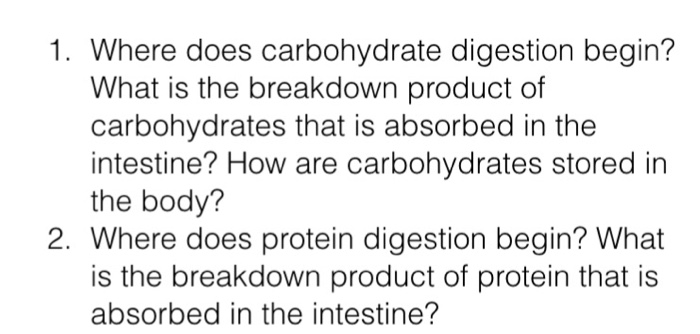



Where Does Carbohydrate Digestion Begin What Is The Chegg Com




This Flow Chart Shows The Steps In Digestion Of Carbohydrates The Different Levels Shown Are Starch Carbohydrates Biology Biology Notes Anatomy And Physiology




The Energy You Use Comes From The Carbohydrates In Food Your Body Changes Carbohydrates Into Glucose A Form You Can Use For Immediate Energy Your Ppt Download




The Energy You Use Comes From The Carbohydrates In Food Your Body Changes Carbohydrates Into Glucose A Form You Can Use For Immediate Energy Your Ppt Download




Chapter 24 Nutrition Metabolism Lecture Ppt Video Online Download




What Are Carbohydrates Ojha Fitness Tract




Chapter 6 The Human Organism And The Importance Of Nutrition Ppt Download



1




The Energy You Use Comes From The Carbohydrates In Food Your Body Changes Carbohydrates Into Glucose A Form You Can Use For Immediate Energy Your Ppt Download




Heterotrophs Consumers The Nutritional Requirements Of A Heterotroph Include Carbohydrates And Lipids Amino Acids Vitamins And Minerals Water Ppt Download




10 1 The Importance Of Nutrition Why Nutrition Matters Ppt Download




Brainpop Carbohydrates Flashcards Quizlet




Nutrients Nutrition Free Science Videos For Kids Ppt Download




Organ How It Aids In Digestion Ppt Download




Carbohydrates Mybefreehealth




Chapter 4 Carbohydrates Sugar Starch Glycogen And Fiber Ppt Video Online Download



Nutrition Exam 2 Flashcards Quizlet




The Energy You Use Comes From The Carbohydrates In Food Your Body Changes Carbohydrates Into Glucose A Form You Can Use For Immediate Energy Your Ppt Download




The Energy You Use Comes From The Carbohydrates In Food Your Body Changes Carbohydrates Into Glucose A Form You Can Use For Immediate Energy Your Ppt Download




Pin On Biologia Szkola



0 件のコメント:
コメントを投稿